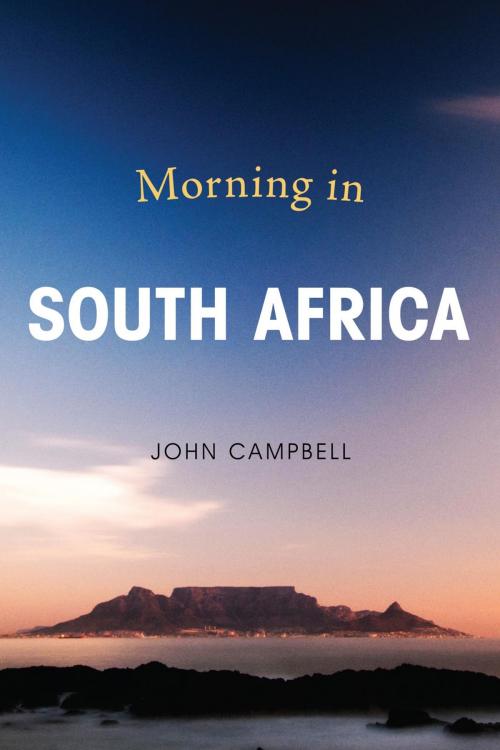Morning in South Africa
Nonfiction, History, Africa, South Africa, Social & Cultural Studies, Political Science, International, International Relations| Author: | John Campbell | ISBN: | 9781442265905 |
| Publisher: | Rowman & Littlefield Publishers | Publication: | May 12, 2016 |
| Imprint: | Rowman & Littlefield Publishers | Language: | English |
| Author: | John Campbell |
| ISBN: | 9781442265905 |
| Publisher: | Rowman & Littlefield Publishers |
| Publication: | May 12, 2016 |
| Imprint: | Rowman & Littlefield Publishers |
| Language: | English |
This incisive, deeply informed book introduces post-apartheid South Africa to an international audience. South Africa has a history of racism and white supremacy. This crushing historical burden continues to resonate today. Under President Jacob Zuma, South Africa is treading water. Nevertheless, despite calls to undermine the 1994 political settlement characterized by human rights guarantees and the rule of law, distinguished diplomat John Campbell argues that the country’s future is bright and that its democratic institutions will weather its current lackluster governance.
The book opens with an overview to orient readers to South Africa’s historical inheritance. A look back at the presidential inaugurations of Nelson Mandela and Jacob Zuma and Mandela’s funeral illustrates some of the ways South Africa has indeed changed since 1994. Reviewing current demographic trends, Campbell highlights the persistent consequences of apartheid. He goes on to consider education, health, and current political developments, including land reform, with an eye on how South Africa’s democracy is responding to associated thorny challenges. The book ends with an assessment of why prospects are currently poor for closer South African ties with the West. Campbell concludes, though, that South Africa’s democracy has been surprisingly adaptable, and that despite intractable problems, the black majority are no longer strangers in their own country.
This incisive, deeply informed book introduces post-apartheid South Africa to an international audience. South Africa has a history of racism and white supremacy. This crushing historical burden continues to resonate today. Under President Jacob Zuma, South Africa is treading water. Nevertheless, despite calls to undermine the 1994 political settlement characterized by human rights guarantees and the rule of law, distinguished diplomat John Campbell argues that the country’s future is bright and that its democratic institutions will weather its current lackluster governance.
The book opens with an overview to orient readers to South Africa’s historical inheritance. A look back at the presidential inaugurations of Nelson Mandela and Jacob Zuma and Mandela’s funeral illustrates some of the ways South Africa has indeed changed since 1994. Reviewing current demographic trends, Campbell highlights the persistent consequences of apartheid. He goes on to consider education, health, and current political developments, including land reform, with an eye on how South Africa’s democracy is responding to associated thorny challenges. The book ends with an assessment of why prospects are currently poor for closer South African ties with the West. Campbell concludes, though, that South Africa’s democracy has been surprisingly adaptable, and that despite intractable problems, the black majority are no longer strangers in their own country.















